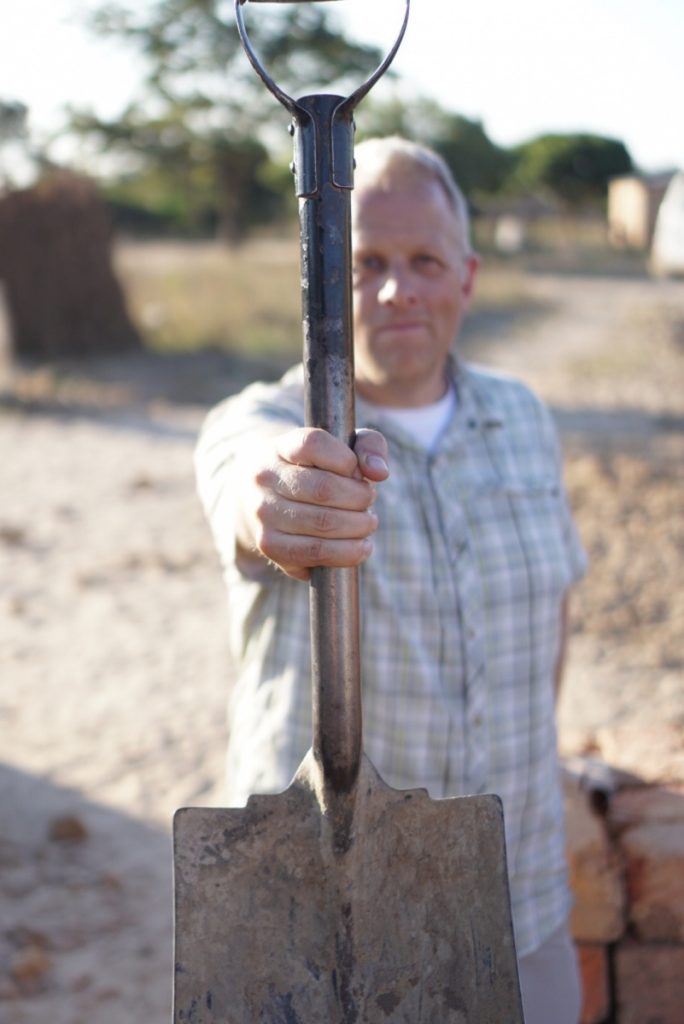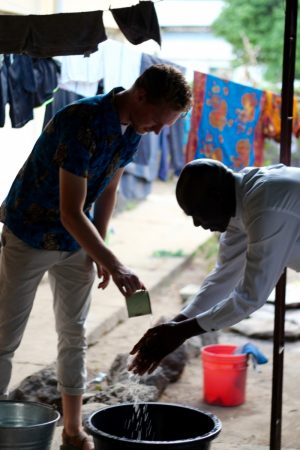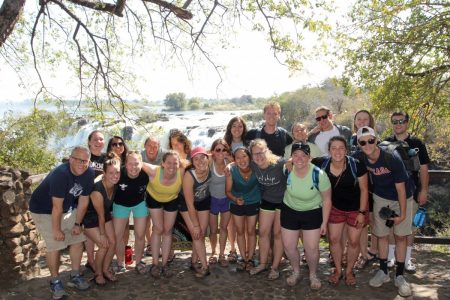
Let me begin by offering my heartfelt appreciation to the families and friends of our Gonzaga students on this Zambezi program. We have felt your prayers, words of encouragement, and challenges to live into the moments of learning that Zambezi provides. In particular, I am thankful for the support of parents and families. You have trusted us with your child, and I can’t wait for you to hear firsthand the relationships that they have built with Zambezi residents, the challenging conversations we have had, and the true moments of kinship.
This is my tenth year of leading this study abroad program in Zambezi. During this past decade, the people of Zambezi have continually welcomed us into their lives. As we strive to practice accompaniment, we see more of the community, both the beautiful and the painful. As you have read in the blog over the past month, students dive deep into the fabric of this community.
Each year, I learn lessons, some new, some that I need to continually learn. These lessons can smack me across the face or be a small still moment that I can’t seem to shake. One lesson that I continue to return to centers on how difficult it is to “do good in the world.” Zambia is littered with those with good intentions who have created more harm than good. In our community work, we are often working against years of colonial relationships that solidified the power dynamic in our favor and didn’t empower communities with an honest mutuality that sustainable change requires. We are often asked (by individuals, churches, and community groups) to fund projects without the necessary relationships firmly in place. My time in Zambezi is laced with explanations of our role in this community and conversations about coming alongside Zambians as they stand on their own two feet.
This was the context for a morning run that Ethan Kane and I took to the local cemetery last week. As we walked through the overgrown site, honoring the dead in a place that buries too many, often too young, we stumbled upon a group of six men digging a grave. We approached them and offered our condolences, sitting in the silence and weight of the moment. Then one of the men turned to me and asked, “Can you give us a couple shovels?” This question went straight to my Western ears, and I thought, are you kidding me? We stop by this gravesite and you are asking me to go buy you some shovels? I was taken back.
We have been talking in our nightly reflections about sitting in the discomfort of a moment, and I listened to his question again though my Zambian cultural lens, can you give us a couple shovels? I suddenly realized he was inviting us into his experience, offering us a chance to join him in the mournful work of burying his sister. So we jumped into the emerging grave and shoveled – Ethan diving into the work with the passion of a heavy heart. As earth was moved, we heard about the 25-year-old women who had passed, about the upcoming day of celebrating her life, about those she was leaving behind. For a moment, we belonged. We were invited to participate in a sacred moment.  The opportunity offered by our mourning friends was one of kinship; as Fr. Greg Boyle says, “There is no us and them; there is only us.”
The opportunity offered by our mourning friends was one of kinship; as Fr. Greg Boyle says, “There is no us and them; there is only us.”
This morning run will stick with me for a while. Not just for the reminder that I am continually learning to hear our Zambian friends through their cultural lens, but also the affirmation that many Zambians have graciously invited us into the joy and pains of their everyday life in ways that continue to be spellbinding for me.
We are heading out to our international flights home today. We look forward to be in the arms of loved ones, but Zambia’s lessons will be in our hearts and minds for years. Thank you for following along, it is my hope that, in a unique way, you have also been challenged by the poignant moments and will continue to engage our community of Zags in Zambia as we make sense of these experiences.
Kisu, mwane.
Dr. Joshua Armstrong


Thank-you so much for sharing your passion for Zambia with these wonderful GU students. It is such an incredible opportunity for them and, as a parent, it is very comforting to know they are traveling with you as you complete your tenth year with this incredible program.
We can’t wait to hear more from Joe as he shares and reflects on this life-changing journey. He spoke so highly of you before he left (and was especially excited that you encouraged him to bring along his fishing pole.) From reading these heartfelt blogs, it’s clear these students have been so inspired by your leadership as they desire to serve others and to embrace the many lessons from sharing and working together with the people of Zambezi. This Zag family will forever treasure these special friendships and once in a lifetime experiences.
Warmly,
Lori Hale (Joe’s mom)
Yes, thank you for sharing this wonderful piece. I echo what Lori Hale says above. I have never questioned the safety of the Zag’s in your watch and knew they would have an awesome experience.
I look forward to greeting you all at Sea-Tac and to hear Morgan S. share her experiences over the coming months. Safe travels home.
Blessings,
Amy Phifer
Dr. Joshua,
I can hear the Zambians, our Zags, and your family through the vivid picture you created of belonging. You have a gift of not only accompanying our zags and the Zambezi people but also articulating it in a way that brings all of us together.
Thank you for bringing my soul back to that special place.
I’m excited to hear your stories in Spokane!
Kisu, mwane!
Hayley Medeiros